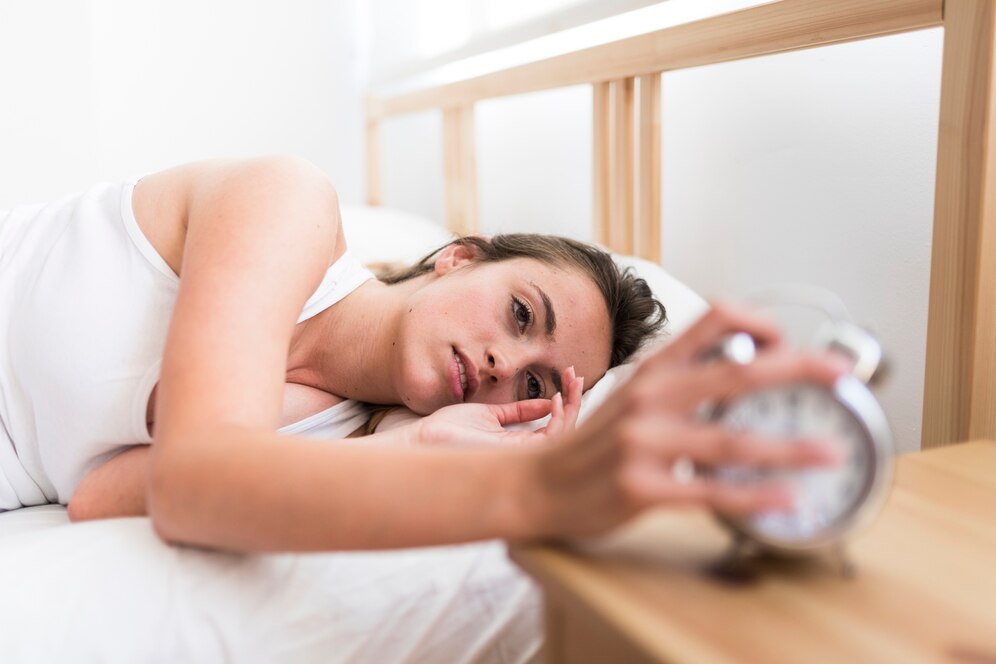Introduction
The value of getting enough quality sleep cannot be emphasized in our fast-paced, constantly changing world. A person’s ability to maintain physical health, mental clarity, and emotional equilibrium all depend on getting enough sleep. However, many people give up sleep in the pursuit of productivity without realizing the significant adverse effects it has on their day-to-day activities. This blog seeks to clarify the importance of getting a good night’s sleep as well as offer helpful advice for enhancing sleep hygiene. Keep reading to dive into the depth of the topic.
The Importance of Quality Sleep
A. Physical Health:
- Restoration and Healing: Quality sleep plays a crucial role in the body’s ability to repair and rejuvenate. Muscles and tissues are generally repaired during deep sleep, and the immune system strengthens.
- Weight Management: Lack of sleep has been connected to obesity and weight gain. It disrupts the balance of hunger hormones, leading to increased cravings for unhealthy foods.
B. Mental Clarity and Cognitive Function:
- Memory Consolidation: The brain consolidates memories and processes information during sleep, enhancing learning and problem-solving abilities.
- Emotional Stability: Proper quality sleep is vital for emotional well-being, helping regulate mood and stress levels. Sleep deprivation can contribute to anxiety and irritability.
C. Overall Performance:
- Productivity: Quality sleep is a cornerstone of productivity. Well-rested individuals are more focused, creative, and efficient in their daily tasks.
- Athletic Performance: Good sleep is especially beneficial to athletes since it improves their performance overall, muscle healing, and coordination.
Tips for Improving Sleep Hygiene:
A. Establishing a Consistent Sleep Schedule:
- Set a Regular Bedtime: Going to bed and waking up at the same time every day helps regulate the body’s internal clock.
- Limit Weekend Deviations: Consistency, even on weekends, reinforces the body’s natural sleep-wake cycle.
B. Creating a Relaxing Bedtime Routine:
- Unplug from Screens: The blue light emitted by electronic devices may interrupt the production of melatonin, the sleep hormone. Establish a screen-free period before bedtime.
- Calming Activities: You should engage in calming activities such as reading a book, practicing meditation, or taking a warm bath to signal to your body that it is time to wind down.
C. Optimizing the Sleep Environment:
- Comfortable Mattress and Pillows: Invest in a comfortable mattress and pillows that provide proper support. The right sleep environment enhances the quality of rest.
- Temperature Control: You should maintain a cool room temperature for optimal sleep. The ideal range is typically between 60-67 degrees Fahrenheit.
D. Mindful Nutrition:
- Avoid Heavy Meals Before Bed: Large, heavy meals can cause discomfort and indigestion, negatively impacting sleep. Opt for a light snack if needed.
- Watch Caffeine Intake: Limit caffeine consumption, mainly in the afternoon and evening. Caffeine may disrupt sleep patterns and lead to restlessness.
E. Regular Exercise:
- Morning or Afternoon Workouts: Engaging in regular physical activity, preferably in the morning or afternoon, promotes better sleep. Avoid intense exercise close to bedtime.
- Yoga and Stretching: Incorporate relaxing exercises like yoga or stretching into your routine, helping to alleviate stress and tension.
F. Manage Stress and Anxiety:
- Journaling: Write down any concerns or thoughts before bedtime to clear your mind.
- Mindfulness and Meditation: Practice mindfulness meditation to promote relaxation and reduce stress. Apps and guided sessions can be helpful.
G. Limit Naps:
- Short and Early Naps: If you need to nap, keep it short (20-30 minutes) and avoid napping too close to bedtime.
- Prevent Oversleeping: Long or irregular naps during the day can interfere with nighttime sleep. Aim for a consistent sleep schedule.
H. Seek Professional Help When Needed:
- Consult a Sleep Specialist: If sleep issues persist, consider consulting a sleep specialist or healthcare expert to identify and address underlying sleep disorders.
- Therapeutic Interventions: Cognitive-behavioral therapy for insomnia (CBT-I) can be effective in treating persistent sleep difficulties.
Conclusion:
It’s critical to understand that getting enough sleep is a need for general well-being and well-being, not a luxury in a society that frequently celebrates productivity. People can fully grasp the benefits of improved sleep hygiene and realize the significance of getting proper sleep for their mental, physical, and emotional well-being. Make quality sleep a priority, and watch as every aspect of your life benefits from the rejuvenating power of a good night’s rest.
For more trending updates or fitness tips, click here!











